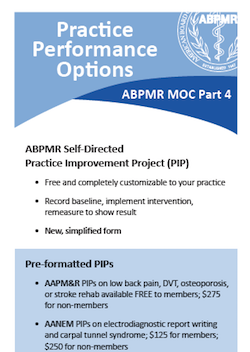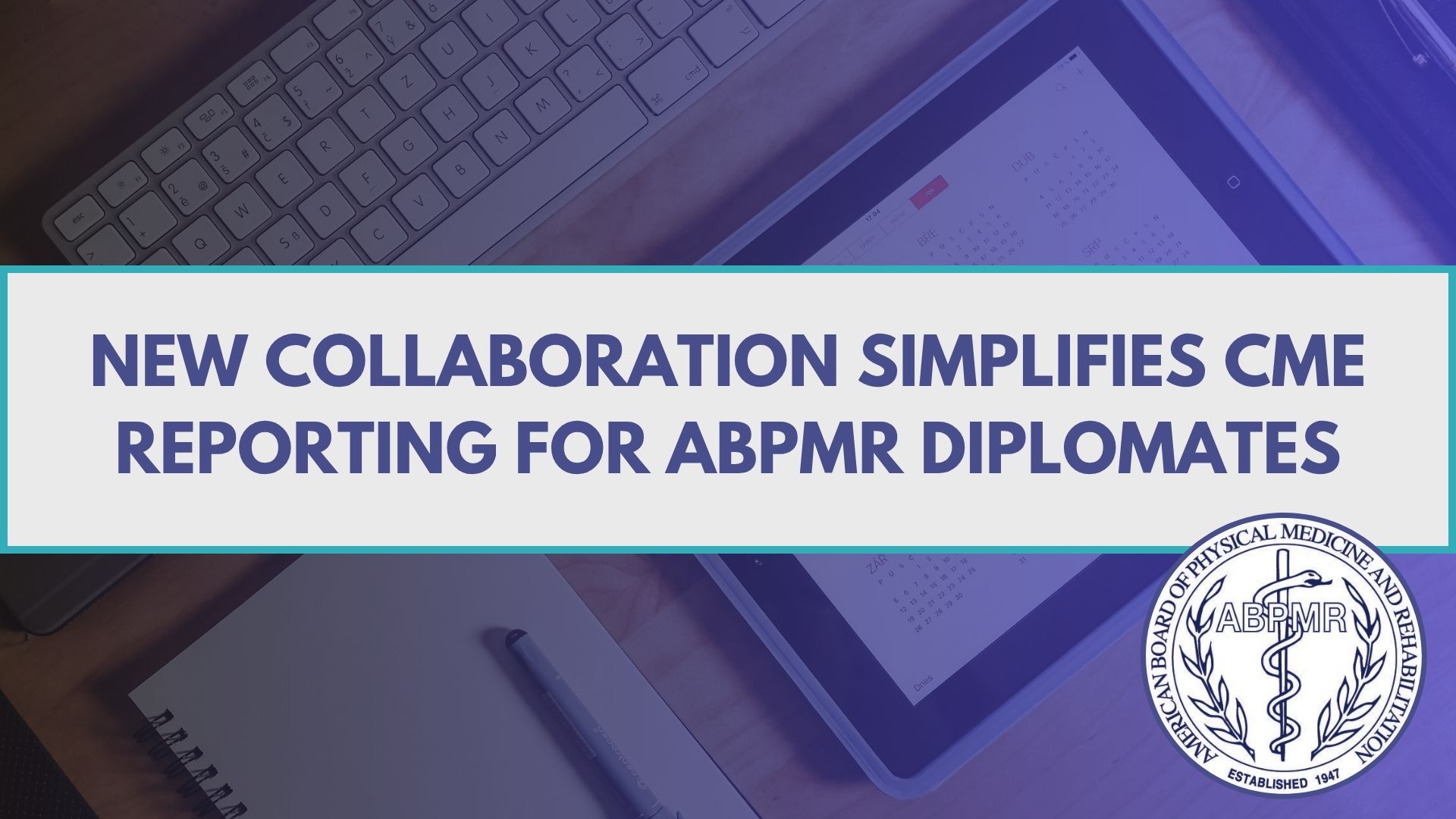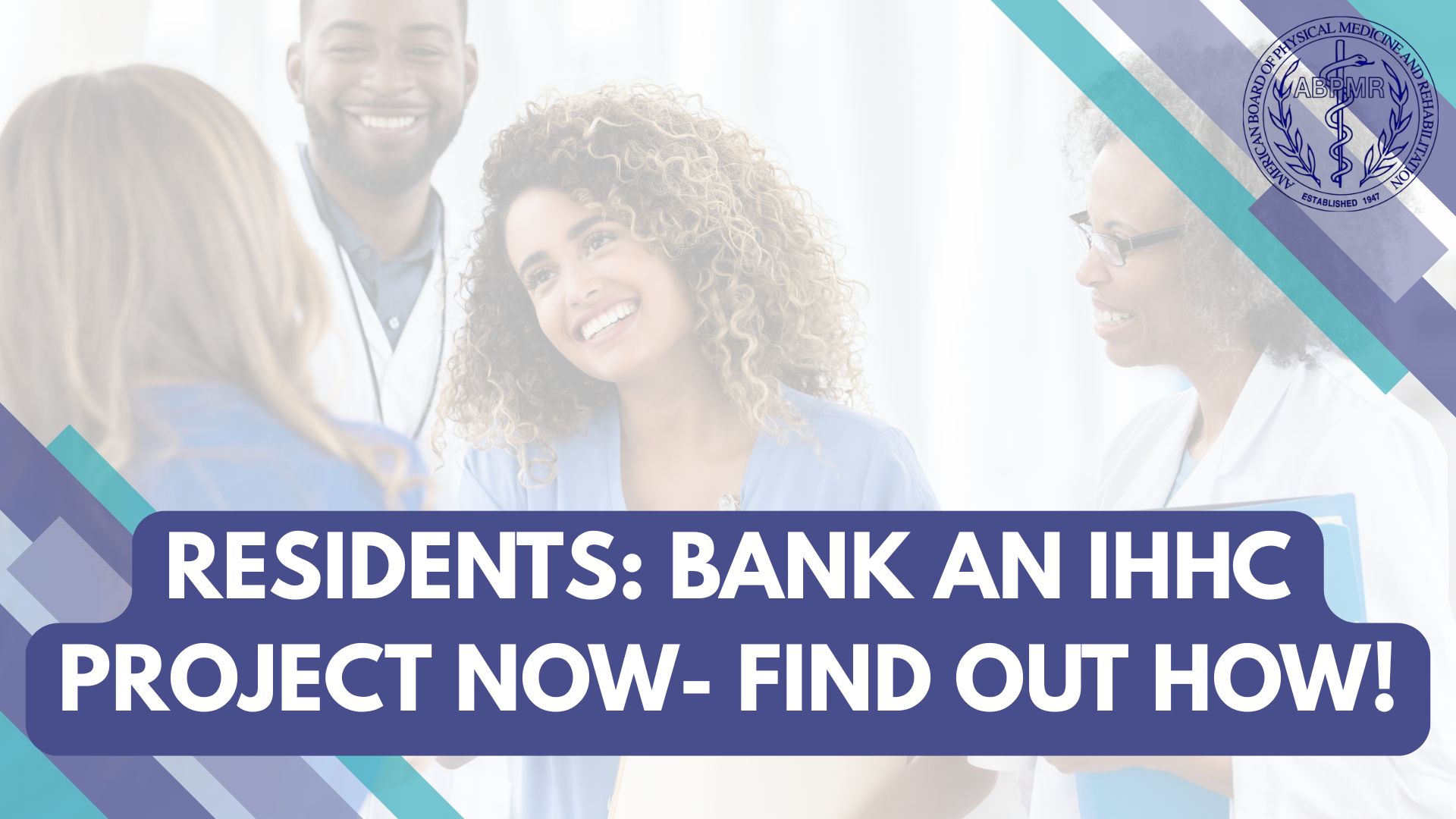CC
Your Most Common Questions for the ABPMR Booth at the AAPM&R Annual Assembly

At the 2016 American Academy of Physical Medicine and Rehabilitation (AAPM&R) Annual Assembly in New Orleans, ABPMR staff and board directors hosted a booth as well as two separate educational sessions for attendees — an MOC session on PIPs and an open forum Town Hall.
We heard a lot of good questions and feedback at the booth and certain questions came up again and again. The most common questions, and our responses, are below.
Tell me what to do for the PIP (or ABPMR MOC Part IV).
There are now more options than ever for completing the Practice Improvement Project (PIP) or Part IV of the ABPMR MOC Program. When talking to you at the booth, we realized that perhaps that's one of the reasons this requirement, intended to be a straightforward record of a small improvement you've made in your practice, can feel overwhelming.
Check out this simple rack card (pictured above) that we handed out at the booth that spells out your options. In a nutshell:
- ABPMR self-directed option: Most customizable; checklist walks you through process; may be some follow-up work after board review
- Pre-formatted options: Stepwise and straightforward for quality improvement (QI) beginners; limited topic areas (may not be as relevant)
- Multi-specialty Portfolio Program: Participate in a project within your participating institution or apply to be a participant. Institutional projects automatically fulfill requirement
- AAPM&R Spine Registry: Brand new spine registry project granting Part IV credit; contact AAPM&R to ask about the pilot and timing of implementation
Finally, stay tuned for a tool we're developing for our website that will walk you through the decision-making process, helping you pick the best PIP option for your unique practice and situation.
If I'm chosen for the CertLink pilot, does that mean I don't have to take the MOC Exam?
We released details on the ABPMR CertLink MOC Assessment Pilot just before the Annual Assembly for a reason: We wanted you to come to us with your questions and comments.
Overall, we heard lots of positive feedback about the pilot concept and plans. Several people wanted to sign up for the pilot (but we're randomly selecting participants) and many of you wanted to know whether the pilot means you can skip the MOC Examination altogether.
The short answer? No. During the pilot, which will run from 2018 through 2020, all diplomates — pilot participants and non-participants — will still take the MOC Examination so that we can compare performance between the two groups. In 2020, the board will decide whether the pilot was successful, and if so, how the final CertLink product will be implemented for all ABPMR diplomates.
Do you recommend a specific board review course or other tool to study for the MOC Examination?
While we don't endorse or recommend any board review courses or tools over any others, we have recently developed a few free tools of our own to help diplomates prepare for the exam.
The MOC Examination Outline has been revised and expanded so you can see in detail what topics and subtopics will be on the exam — and which ones won't. Diplomates say this has been an invaluable tool in their study planning. Click to download the outline and a study tip sheet.
Last year, we also released the MOC100, which is a set of 100 MOC Examination practice questions from our question bank, and they're still a completely free download from our website. We recommend testing yourself, studying up on those topic areas you missed, and then testing yourself again a couple months later. This longitudinal assessment–type study method has been shown in studies to improve memory retention.
Do you still have questions?
Please contact the board office. Our knowledgeable staff is happy to help you at any time — you don't have to wait until next year's booth.



